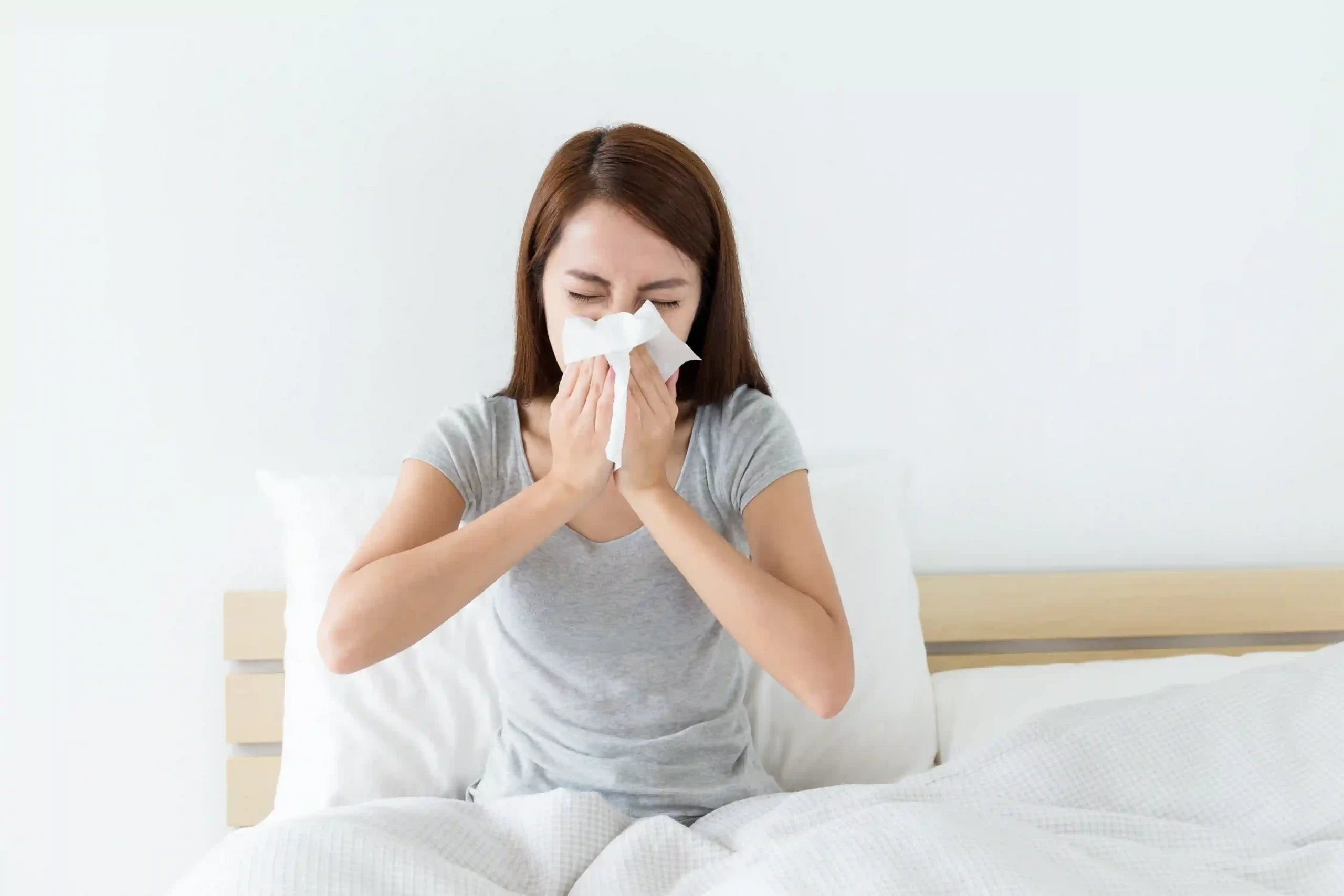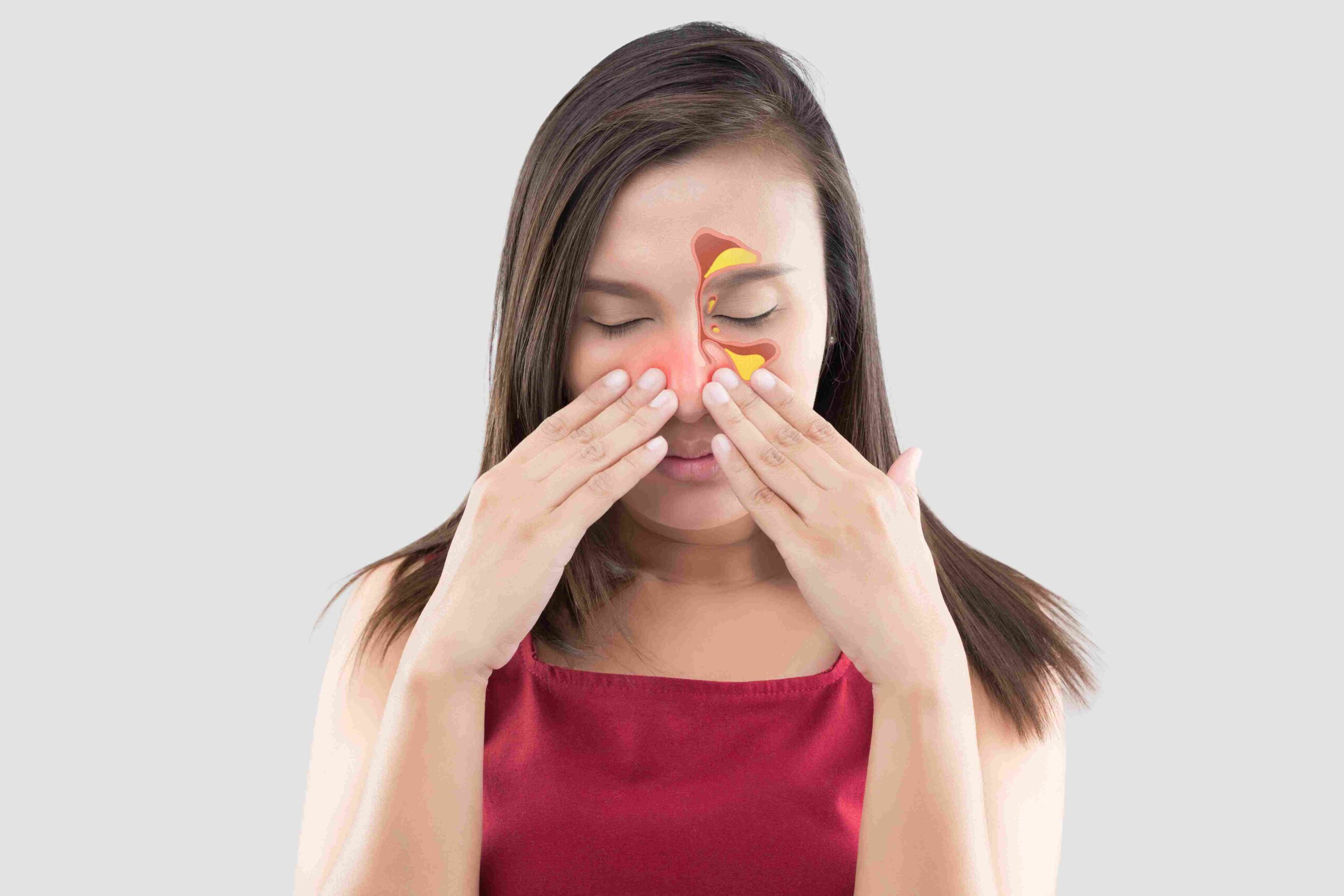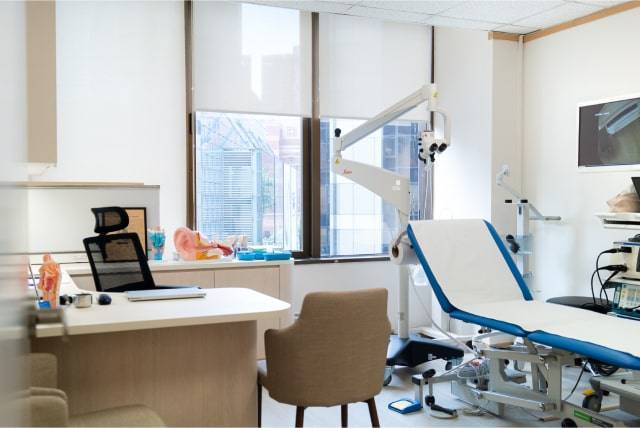Imagine waking up daily with a runny nose, facial pain or difficulty breathing even when you are not sick. This is the reality for many people who experience morning sinus. Morning sinus occurs when individuals’ sinuses are inflamed, resulting in various symptoms, including those that interfere with airflow in the nasal passage.
In Singapore, this condition is more common than you realise and tends to be exacerbated by the country’s humid climate and urban environment. Nevertheless, having a good understanding of morning sinus, its symptoms, causes and how to address the issue, as explained in this article, can help you take the necessary steps to combat this potentially frustrating condition.
What is Morning Sinus?

Morning sinus, also known as allergic rhinitis, is a common phenomenon for many individuals worldwide. Most of the time, these symptoms mimic the common cold, and individuals with morning sickness are not actually ill due to the flu or a cold.
Causes of Morning Sinus
In Singapore, several possible reasons can contribute to morning sinus. Understanding the different causes can help you potentially address the root cause of your condition and alleviate symptoms.
Allergen Exposure
Exposure to allergens is one of the most common causes of morning sinus. When the body comes into contact with an allergen, it reacts by activating the immune system. This mechanism may lead to inflammation and swelling of the sinus linings.
More importantly, morning allergies can be of many different types. Some common triggers for people in Singapore include dust mites, pet dander and pollen allergens.
- When it comes to dust mites, you must be mindful that dust can easily accumulate regardless of how spotless your home or environment may seem. Most of the time, you can find them in the bedding and upholstered furniture. Moreover, the combination of these dust particles and Singapore’s humid environment can easily trigger an allergic reaction. You may sneeze, cough or experience nasal congestion after sleeping in these dust-ridden spots. As such, make sure to clean your bed sheets and furniture regularly.
- For those living with cats or dogs, you need to be mindful of their dander (tiny skin flakes). They may shed dander into your bedding, which triggers an allergic reaction when you sleep. Routine grooming of your pet will help with this issue.
- Sometimes, outdoor pollen may be carried home on your clothes or through open windows. For some people, this could trigger a reaction (hay fever).
Tip: You can also try using allergen-proof covers to minimise exposure to dust mites.
Environmental Pollution
Aside from allergens, pollution from Singapore’s urban surroundings can also trigger swelling of the sinuses, which can lead to morning sinus. Similarly, smoking or being around those who smoke can produce the same effect.
Hormonal Changes
During periods when the body undergoes significant hormonal changes, such as pregnancy or menopause, they are at risk of developing a more sensitive nose that can become easily inflamed.
Respiratory Condition or Infection
At times, it is also possible that morning sinus are caused by the flu, common cold, or other respiratory conditions (e.g., asthma, chronic sinusitis, etc). When a person has a respiratory condition, their sinuses can also become inflamed as a side effect, which leads to the same symptoms of morning sinus.
Structural Abnormalities
Some individuals may have certain structural abnormalities in their nasal passages that are left undetected. Some of the common abnormalities include a deviated septum or nasal polyps. When such abnormalities are present, they tend to block the airflow in the nasal passage and encourage mucus buildup, which increases the chances of sinus inflammation. Hence, there is an increased risk of morning sinus.
While the above are probable causes of morning sinus, you may still be uncertain of the underlying condition. You are encouraged to visit an ear, nose and throat (ENT) specialist for a proper diagnosis and tailored treatment. For patients with serious respiratory conditions or structural abnormalities, you will likely require medical intervention to achieve relief and prevent recurrence.
Why Are Allergies Worse in The Morning?
If you wonder why your allergies worsen in the morning, the answer lies in gravity. As you lie flat to sleep, gravity is no longer helping you to drain mucus from your sinuses. As a result, your mucus can build up overnight and cause congestion as you wake up.
Additionally, the usual sleeping positions can also encourage postnasal drip to occur. This means that mucus from the sinus drips down to your throat as you sleep. This can result in irritation of the airway, which translates to challenging breathing in the morning.
Some other factors to consider also include dry air from air-conditioning throughout the night and higher levels of pollen spread, resulting in worse morning allergies.
Symptoms of Morning Sinus

Morning sinus can include a range of symptoms, with most individuals experiencing multiple symptoms at a time. Tell-tale signs of morning sinus include the onset of the following symptoms as one wakes up:
- Runny nose
- Nasal congestion
- Difficulty breathing (including wheezing)
- Facial tenderness or pain, especially near the eyes, cheeks and nose
- Postnasal drip
- Headaches
- Sore throat
- Coughing
While these symptoms may last throughout the day for some people (e.g. those with chronic sinusitis), the symptoms are usually most intense in the morning.
How to Manage Symptoms of Morning Sinus
For those who are struggling with morning sinus, here are some tips to help you manage your condition:
- Drink plenty of water to thin out mucus and prevent congestion.
- Use a saline nasal spray before bed to keep your nasal passages clean and free from irritants. The spray can also loosen mucus, which prevents accumulation and could lead to morning congestion.
- Alternatively, try a warm compress on the face to open the sinuses and minimise congestion. However, this will not eliminate potential irritants in the air passage.
- If your room is dry during the night, consider using a humidifier. This will help prevent sinus irritation caused by dry air.
- Opt for an allergy test at an ear, nose and throat clinic in Singapore and consult an ENT specialist to learn how to manage your condition with appropriate treatment available.
When the above methods prove to be ineffective, you are encouraged to consult an ENT specialist for a comprehensive evaluation and solution. You may have an underlying issue that requires a closer look by an ENT specialist who is familiar with the sinuses.
Can Morning Sinus Go Away On Its Own?
Depending on the cause of your morning sinus, it may or may not go away. If the cause of your condition is due to an ongoing infection from a cold, symptoms may disappear as you recover.
However, if your issue is due to a more complex underlying cause, such as a structural abnormality, your morning sinus is unlikely to resolve on its own and may worsen and escalate into persistent conditions such as chronic sinusitis.
Treatment Options Available for Morning Sinus
Effective measures you can take to tackle morning sinus include:
- Home Remedies
- These include conservative measures such as the use of saline sprays, taking over-the-counter (OTC) medications or installing a humidifier to improve your morning sinus. OTC decongestants or antihistamines may be sufficient for some people to manage their morning sinus congestion.
- Medications
- If medications does not provide any relief, you should seek an ENT specialist who can prescribe you the appropriate medications. These typically include corticosteroids or antibiotics, depending on the cause of your morning sinus.
- Surgery
- In complex cases where conservative measures prove ineffective, patients may be recommended for surgery. This surgery may vary and is done to remove any blockages in the nasal passage.
Consult Dr Ker Liang for Morning Sinus - Same Day Appointments Available

If you have been experiencing symptoms of morning sinus and cannot find relief, consult an allergic rhinitis specialist in Singapore for an accurate assessment and tailored treatment plan.
Dr Ker Liang is the Medical Director of Aglow ENT Centre and an experienced allergic rhnitis specialist in Singapore who can help you manage your symptoms and provide tailored treatment plans. Contact us today to schedule a consultation and take the first step towards feeling better.






